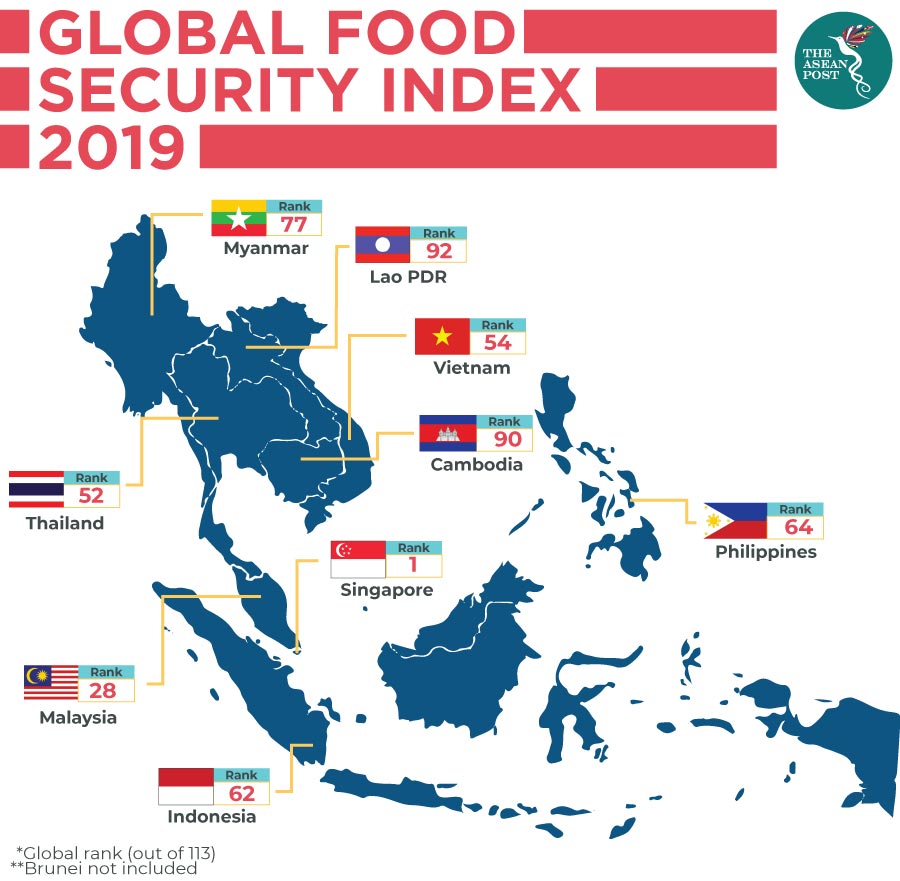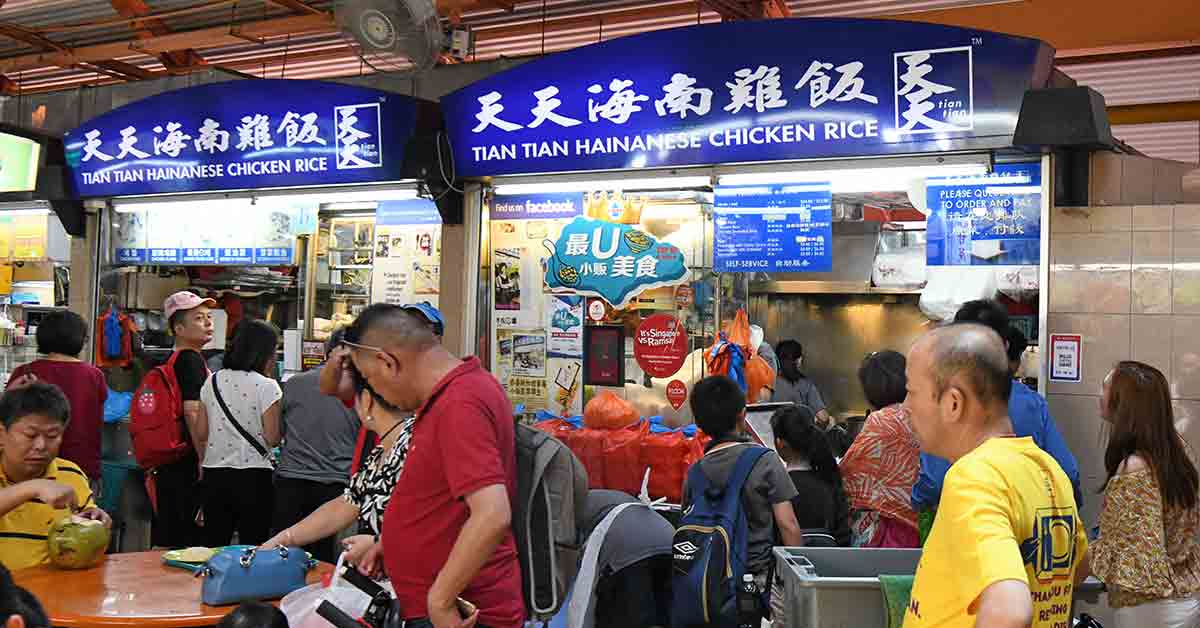Singapore is cheap. This is something you will not hear from many tourists who go to visit the popular island state. As such, the fact that Singapore has one of the most affordable food prices in the world may be a little hard to “swallow” at first.
Nevertheless, this is exactly what the Economist Intelligence Unit (EIU) revealed in its recent Global Food Security Index published on 9 December. In fact, Singapore holds second spot only after Qatar for having the most affordable food in the world.
Based on scores earned for affordability, Qatar topped the charts over other countries with a 98.9, Singapore came in second at 95.4, Ireland at 90.5, United Arab Emirates at 89.8, and Kuwait at 88.1.
In terms of food affordability, Singapore far outranked any other ASEAN country in the index. After Singapore came Malaysia but only in 28th place as opposed to Singapore’s 2nd. Malaysia also earned 81.7 points for affordability, compared to Singapore’s 98.9.
But how could this possibly be? Even just a quick look at numbeo.com on the comparison of a meal from an “inexpensive restaurant” shows that what would cost someone in Kuala Lumpur as much as US$3.37, would cost someone in Singapore more than double that amount at US$8.85. According to the EIU, however, the answer lies in the details.
The EIU report found that while global food prices have been rising steadily over the past five years, Singaporeans boasted an average income of US$101,000 a year (about five times the global average of US$23,000) and could well afford food. Meanwhile, the entire population ranks above the global poverty line (income under US$3.20 per day) and suffers zero undernourishment or food deprivation.

Not just affordability
While affordability may be the most surprising pillar that places Singapore so high up in the ranking, it’s important to note that it wasn’t just affordability that the EIU was looking at. It wasn’t just affordability which the Southeast Asian city-state managed to score well in.
Singapore also came in second in the world for availability of food. The report said Singapore had above-average levels of food for its population’s dietary energy requirements, and the government there spent over 10 times the global average on agricultural research and development (R&D) investments.
However, the report did note that the Singapore suffered from volatile agricultural production and a total lack of crop storage facilities and irrigation infrastructure.
Nevertheless, the island state was eventually placed in the top spot overall for the index involving 113 countries. This was followed by Ireland, the United States, Switzerland, and Norway. Meanwhile, Malaysia – next in line as far as ASEAN goes – was placed 28th.
Room for improvement
While Singapore has a lot to celebrate for, the report noted that there is still room for improvement. The EIU looked at three pillars for its Global Food Security Index: affordability, availability, and quality and safety.
While it’s been established that Singapore scored well for both, affordability and availability, it’s score for quality and safety was just short of being stellar.
In terms of food safety and quality, Singapore came in 25th, with the top three spots going to Finland, Norway and Sweden. According to the report, its ranking was heavily impacted by the unhealthy national diet: heavy on starchy foods such as rice and bread, and lacking in quality protein (measured by the presence of nine essential amino acids) and nutrients like iron, zinc, and Vitamin A.
The report added that diets in Africa and Asia had the lowest availability of Vitamin A, zinc, iron and protein. A lack of Vitamin A (found in leafy vegetables) can cause blindness, while a lack of iron (found in red meat and green vegetables) can cause anaemia.
A lack of zinc (found in meat, beans and yoghurt) can compromise immune function and lead to infections.
For some outsiders, food in Singapore might be expensive. The important thing, however, is that Singapore is able to feed its own people. Nevertheless, more focus should be placed in ensuring those meals come with all the nutrients that people need.
Related articles:
